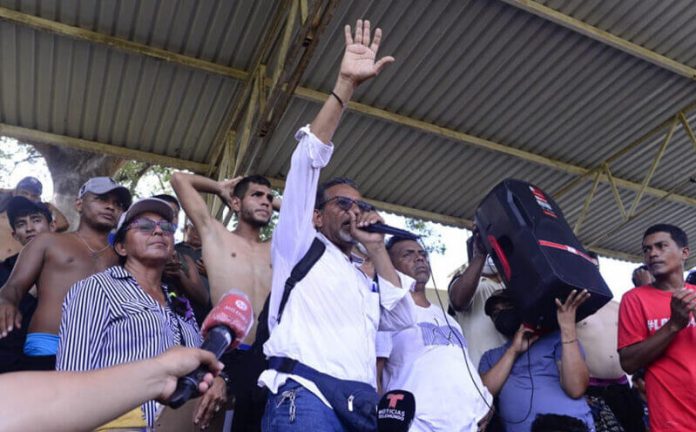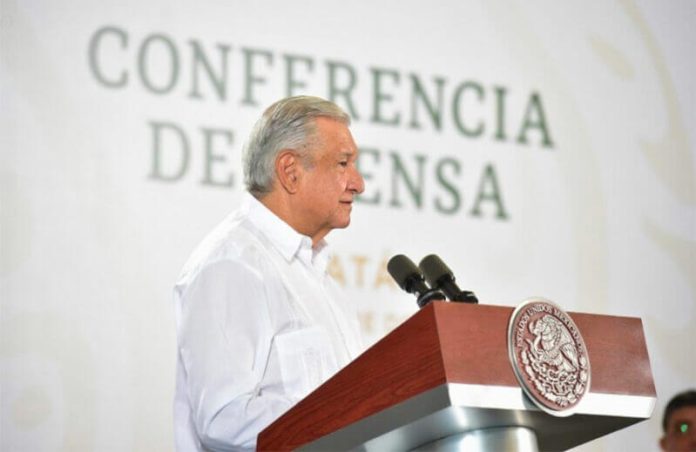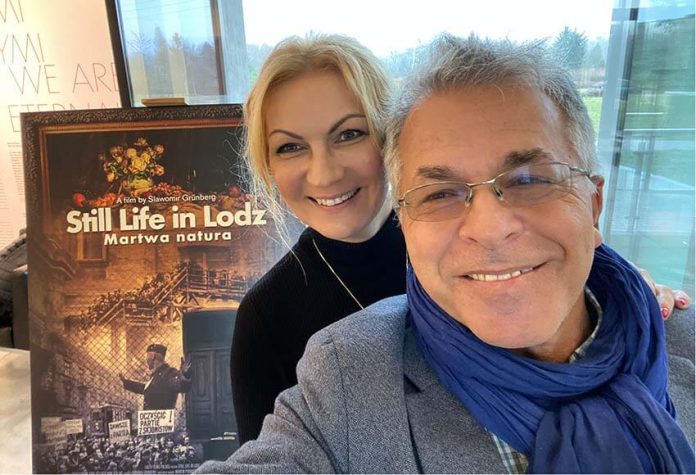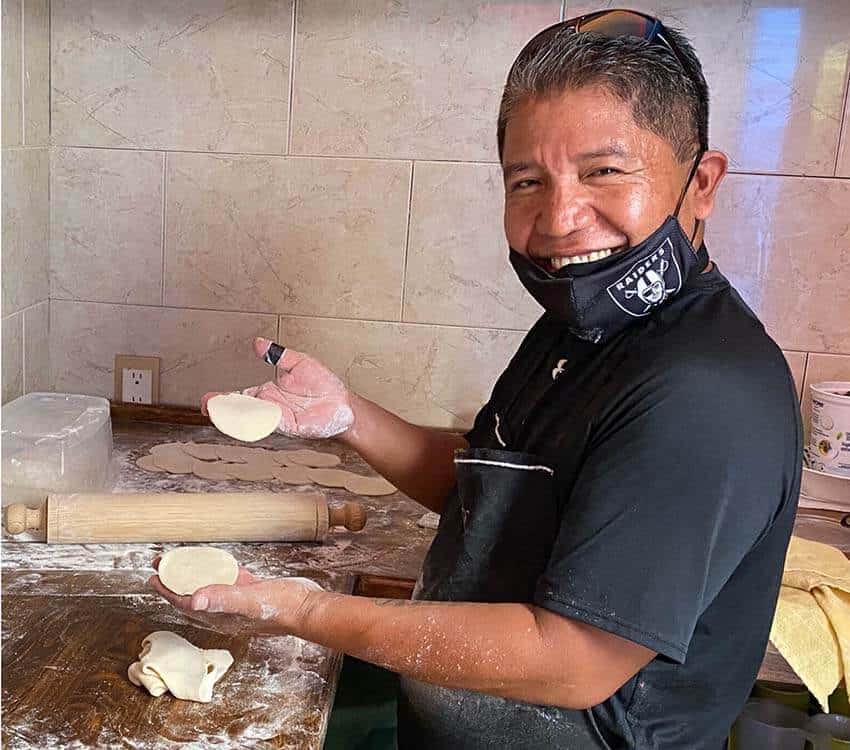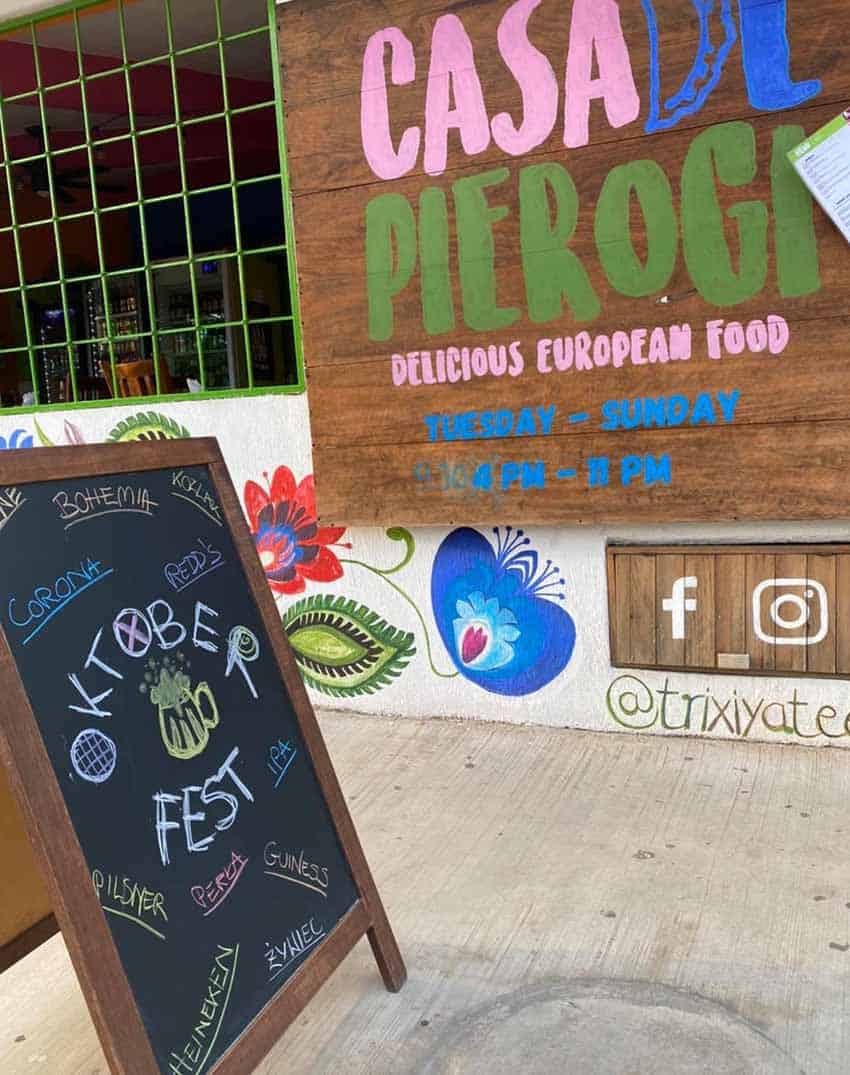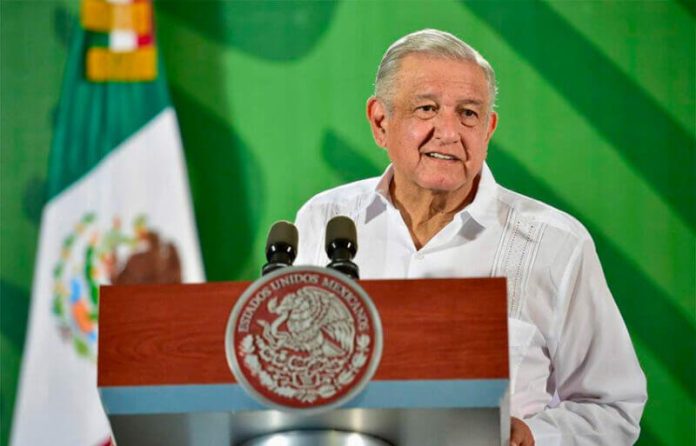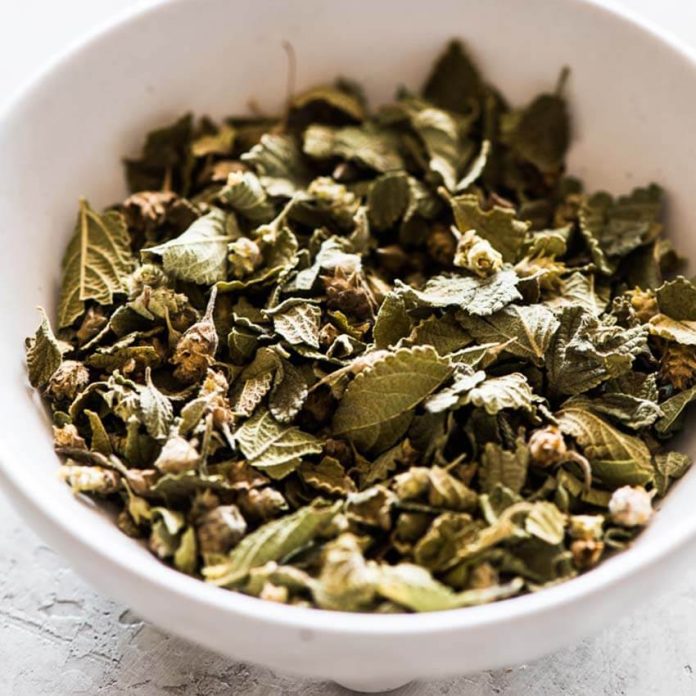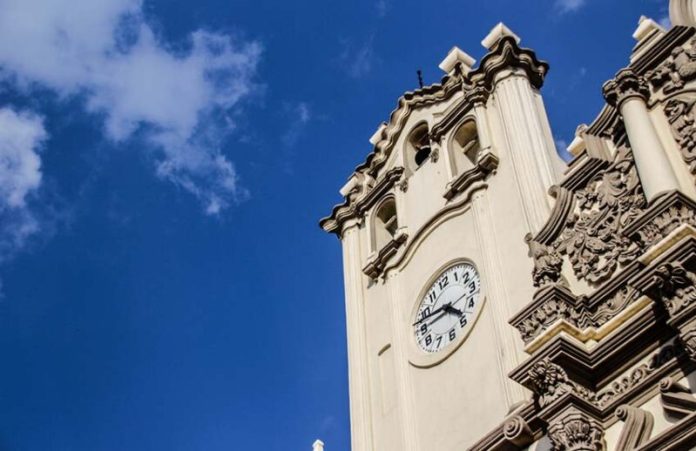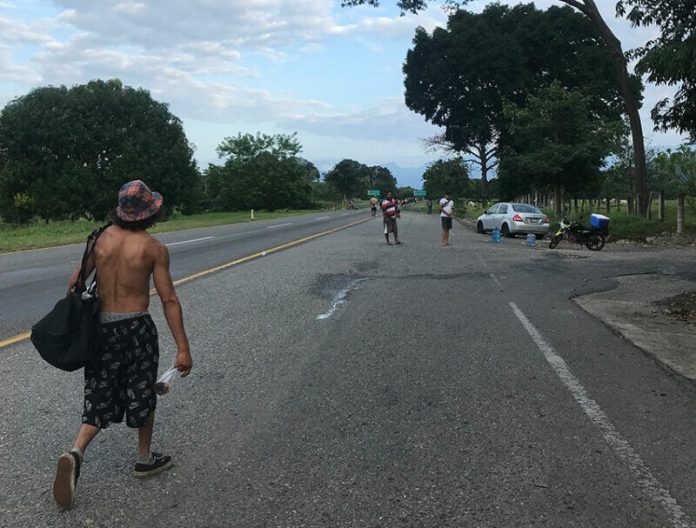Irineo Mújica and Luis Rey García Villagrán are the two people leading the 2,500-strong migrant caravan which left Tapachula, Chiapas, on October 23 and is slowly making its way north. The convoy is largely Central American and partly composed of pregnant women, young children and disabled people.
They’re an unlikely couple. Mújica is a firebrand activist: combative, energetic, instinctive. In contrast, García is more pastor than protester: pensive, eloquent, cool-headed. Both understand the power of public opinion, and have a knack for politics and an eye for the camera.
Their faith also binds them: Mújica is Catholic and García is an Evangelical Christian. The caravan itself is spearheaded by a large wooden cross.
The pair spoke separately to Mexico News Daily about what motivates them to assemble and lead migrant caravans.
Luis Rey García Villagrán, of the Center for Human Dignity:
“I was in prison for 12 years here in Mexico accused of a crime that I didn’t commit. There were a lot of organizations that helped me: Amnesty International, Human Rights Watch, Christian Action for the Abolition of Torture and in Mexico, the Center of Human Rights Fray Bartolomé de Las Casas, until they finally declared me a prisoner of conscience and I won my freedom. That motivated me to help other people. God motivates me to do this. I found God at university; I studied at the UNAM [National Autonomous University].
“I was first held in the most dangerous prison in Chiapas because I insisted I was innocent … that’s a crime in itself … They took me to federal maximum security prisons. I was in Puente Grande [Jalisco] and in Matamoros [Tamaulipas] for five years. In total I was [in prison] for 12 and a half years. In the maximum security prisons I was with the bosses, the leaders of narco trafficking.
“It was for political reasons … a crime that the authorities invented. The criminal records were full of white correction fluid, false signatures. There were graphoscopic investigations … Despite all that, I was sentenced to 78 years in prison until the Inter-American Commission for Human Rights, with headquarters in Washington, took my case and told the Mexican state to free me or to go to the Inter-American Court in Costa Rica. A friendly agreement was reached in which public apologies were given … They paid me and I formed the Center of Human Dignity [with the money].
“The political motive [against me] was that I worked for the government and I didn’t lend myself to corruption … in the federal Attorney General’s Office [as a lawyer].
“We all know narco trafficking turned Mexico into a narco state and we didn’t want to lend ourselves to it, so they fabricated a crime. I was tortured, I lost my vision in my right eye … it motivated me to help other powerless people. Other people in the same condition as me.”
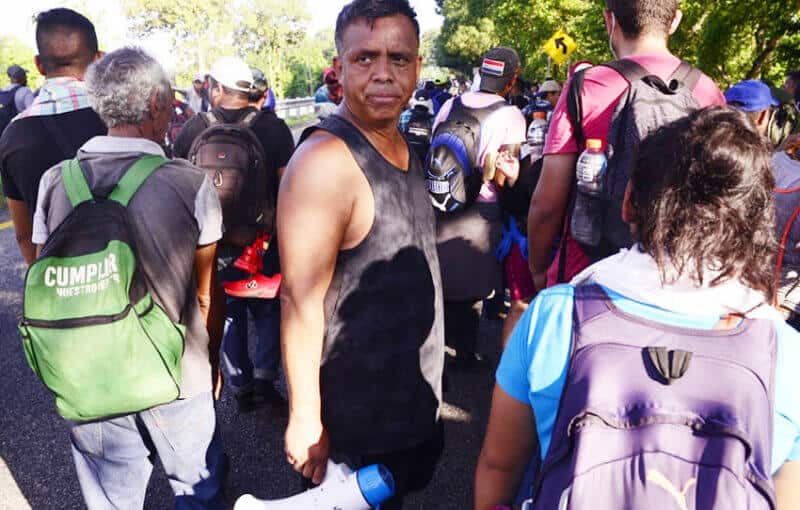
Irineo Mújica, of Pueblos Sin Fronteras, or Peoples Without Borders:
“I’ve been doing this for 20 years, I’ve heard all the stories; it began with my own family. They didn’t want to attend to my father because he was a migrant. I’ve been a migrant [to the United States from Michoacán]. I swore on my life that I would help migrants like my father, that’s why I don’t get tired of it.
“Injustices get stuck in my throat, I’m stuck going back over and over again to what they did to my family. God has a path and a destiny for everyone, and this one is mine. I don’t want to be a politician … the only thing I would have wanted is to help my father and through that I made the promise … if I couldn’t defend him at that time I think being able to defend the many injustices that these people carry, who are just like him [is my path]. The blessing is for him … I have been fulfilling the promise for 20 years.
“We’re going to Mexico City — I’m not going to the border — so that they give them their papers. I firmly believe that Mexico has a responsibility.
“I don’t lie to anyone. What are they [the government] saying? That I’m lying to whom? Who do you think is really lying to whom? I don’t care what [Foreign Minister] Ebrard says to be honest.
“He’s a politician. What has the government’s defense been, that we’re lying? Poverty doesn’t lie, necessity doesn’t lie, prison doesn’t lie, children in the street don’t lie, hunger doesn’t lie. You don’t have to lie because you feel it. You feel all of the damage that they’ve done to you.”
Mexico News Daily
